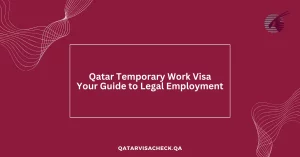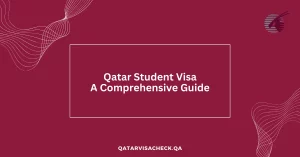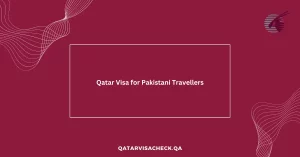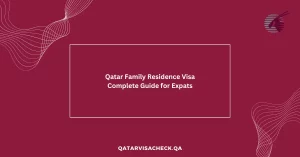Qatar, the captivating economic powerhouse at the crossroads of Europe and Asia, has long beckoned talented individuals from around the globe, seeking to tap into its thriving opportunities. However, for digital nomads and location-independent workers, the country’s complex visa system has posed significant challenges in obtaining the necessary legal status to operate freely.
Traditionally, Qatar has relied heavily on restrictive sponsored employment visas, requiring local entities to act as sponsors – typically employers. This framework has frustrated many freelancers and remote professionals seeking the flexibility to work on their own terms.
In response, some have turned to the ambiguous world of the “freelance visa,” a unique employment visa that allows residents to work independently without a single sponsor. Yet, navigating this visa landscape demands meticulous care, as it comes with a host of stringent policies, limited eligibility, and the ever-present risk of severe penalties for non-compliance.
This comprehensive guide delves into the intricacies of Qatar’s freelance visa system, exploring the qualifications, costs, and legal considerations that digital nomads and self-employed individuals must navigate to thrive in this dynamic Middle Eastern hub.
You can verify the status of your Qatar visa by using our Qatar Visa Status Check tool.
What is Freelance Visa in Qatar?
At the outset, it’s crucial to understand the true nature of the so-called “freelance visa” in Qatar. While the term has become a common shorthand, it represents a specific type of work visa obtained through an unofficial sponsorship arrangement, rather than a stand-alone visa category.
The key distinction from a typical employment visa is that the sponsor does not actually hire, pay or employ the visa holder in any capacity. Instead, the sponsor facilitates the visa holder’s residency by providing the necessary sponsorship, while the visa holder remains free to undertake freelance work.
This arrangement, however, exists in a legal gray area, as it does not align with Qatar’s strict labor regulations, which typically require a bona fide employment contract to underpin a work visa.
Who Qualifies for Qatar Freelance Visa?
To be eligible for a Qatar freelance visa, applicants must meet a specific set of criteria:
Professionals with Specialized Skills
The applicant should possess a specialized skill set, such as web development, graphic design, or consulting, that is in demand within Qatar’s thriving economy.
Relevant Professional Experience
A minimum of two years of relevant professional experience is typically required to qualify for a Qatar freelance visa.
Local Sponsorship
Freelancers in Qatar generally need a local sponsor or a Qatar-incorporated company to endorse their work and provide the necessary sponsorship.
Steps to Get Freelance Visa in Qatar
While there is no standardized process for acquiring a Qatar freelance visa, the key steps generally involve:
Step 1: Secure a Visa Sponsor
Finding a suitable visa sponsor is often the most challenging aspect of the process, as it requires discreet outreach and leveraging personal connections within the local community. Thorough vetting of potential sponsors and seeking trusted referrals are crucial steps.
Step 2: Prepare the Required Documentation
Applicants must have the following documents ready:
- Passport copies
- Educational certificates
- Experience certificates
- Criminal record clearance
- Detailed business plan
Step 3: Negotiate the Fees
Sponsors typically charge a substantial upfront fee, ranging from 5,000 to 10,000 QAR, as well as ongoing monthly payments of 250 to 500 QAR. Applicants must carefully scrutinize these fees for any signs of exploitation or hidden costs, and seek transparency from the sponsor.
Step 4: Sign the Visa Paperwork
The paperwork involved in the process often includes false claims that the sponsor will employ the visa holder, which is in direct violation of Qatar’s labor regulations. Nonetheless, signing these documents is a mandatory step to progress the application.
Step 5: Complete the Remaining Formalities
Once the initial fees are paid, the applicant must undergo a medical examination, provide biometric data, and ultimately collect the physical visa.
Step 6: Renew the Visa
To maintain the validity of the freelance visa, renewal fees must be paid to the sponsor every 2-3 years. Failure to do so can result in the visa’s cancellation and the visa holder’s exit from Qatar.
Weighing the Pros and Cons of the Qatar Freelance Visa
The Qatar freelance visa occupies a complex terrain within the country’s labor landscape, and its benefits and drawbacks must be carefully considered.
Bypassing the Kafala Sponsorship System
One of the primary advantages of the freelance visa is that it allows expatriate workers to bypass the restrictive kafala sponsorship system, which has long been criticized for its tight control over expats’ legal status and exit clearances.
Increased Autonomy and Flexibility
Freelancers value the autonomy and flexibility afforded by the freelance visa, as it enables them to undertake short-term contracts, ad-hoc projects, and part-time work with various Qatar-based companies, rather than being tied to a single employer.
Lucrative for Sponsors
From the sponsor’s perspective, the freelance visa system can be highly lucrative, as it generates substantial revenue through the hefty visa fees, without the associated costs and responsibilities of formal employment.
A Symbiotic, Market-Driven Ecosystem
Ultimately, the complex ecosystem surrounding freelance visas in Qatar persists because it matches the market demand. Expatriates desire visa flexibility, while sponsors profit from that need, creating a symbiotic relationship that perpetuates the framework despite its legal ambiguity.
Hidden Costs and Exploitation Risks
However, the freelance visa system is not without its drawbacks. The exorbitant upfront and ongoing fees, coupled with the lack of legal protections and the perpetual threat of harsh penalties, make freelance visa holders highly vulnerable to exploitation.
Targeting of Lower-Income Migrants
The hidden costs and predatory practices associated with freelance visas disproportionately impact lower-income South Asian migrants, who face language barriers and information asymmetry, further exacerbating the exploitation.
Perpetual Legal Threats and Instability
Freelance visa holders in Qatar live under the constant threat of detention, deportation, and blacklisting, as their independent work status is considered illegal under the country’s labor regulations. Moreover, the potential for the freelance visa system to be eliminated without warning leaves visa holders in a state of perpetual instability.
Navigating the Challenges of Freelancing in Qatar
For those who choose to pursue the freelance visa route in Qatar, there are several essential steps to establish a successful and legally compliant freelance career:
Formalize Your Freelance Venture
Registering your enterprise, obtaining the necessary permits, and opening a local bank account are crucial steps in formalizing your freelance operations in Qatar.
Leverage Networking Opportunities
Qatar offers various networking events and business expositions, allowing freelancers to connect with prospective clients and partners.
Understand the Taxation Landscape
As a freelancer in Qatar, you will typically be subject to modest tax obligations, but it’s advisable to consult a tax expert to ensure compliance with the current regulations.

Hey there, I’m Hamza Al-Abdullah, the brains and heart behind Qatarvisacheck.qa. Proudly rooted in the bustling city of Doha, Qatar, I’ve made it my mission to untangle the visa web for fellow travelers. My website isn’t just a hub for visa info; it’s a personalized journey through the often confusing world of travel documents.







